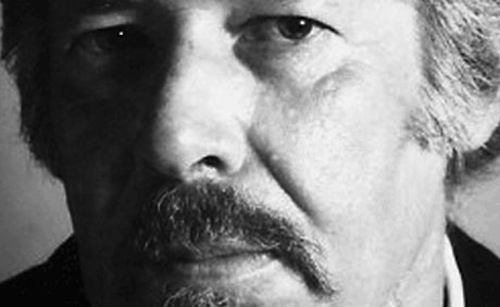Necessary Review of the Last Two Books of Héctor Viel Temperley

For Sink Review, Ian Dreiblatt has reviewed THE LAST BOOKS OF HÉCTOR VIEL TEMPERLEY (translated By Stuart Krimko), "Sand Paper Press’s recent presentation of the two long poems that concluded that poet’s life in a devoted and rich new English translation." As for the poet:
HÉCTOR VIEL TEMPERLEY was born in Buenos Aires in 1933 and died there in 1987. He was the author of nine collections of poetry, including The Swimmer, Nautical Chart, and Foreign Legion. Though he did not give readings and his books were often published in limited editions, Viel Temperley has become recognized in the Argentine literary community as one of the singular poets of his generation. He is perhaps best known for the spiritual intensity and unusual formal structures that characterize his final two books, Crawl and Hospital Britaánico.
Dreiblatt starts off with an epigraph from Lyn Hejinian: “The bone of communication is hollow.” Meaning, for this reviewer:
It is a convention in Judaism that prayer books, when they are ready for replacement (and as they may never be destroyed) are buried with the dead. There is something tender in this, what it shows of the connection between language and the feelings of a religious community, and between the book and the body. And there is also, especially because of the proscription against the artificial preservation of dead people, something deeply icky, or maybe lovely, about the mutual intercomposition of these two degrading things, never complete and nonetheless whole.
Dreiblatt also looks at the poems' relationship to air, to breath, and to "devotional enstasis, drawing perceptions and intuitions toward a contemplative center." Dreiblatt writes that: "Temperley locates his own poetics 'between the eye that trembles / and the eye of the abyss,' and that trembling eye exults in the sacred pageant of seaside urban life, a fervor of rich sensitivities." Writing of Crawl, the first book here:
Nothing is beneath the threshold of the sacred: it is the breathing, seeing, transcending person who passes through this “[c]hapel without votives” that brings it into connection with the infinite. Thus extraordinary things (“Vestry with wheat of nudes listening / to an altar of beehives.”) can readily flux into the most ordinary of things (“Singular shadow. / Planks.”) with no loss to the sacrality of the journey.
The kind of God that emerges, then, is a speaking of everything, a Logos of shreds and patches, accessed through the poem as a practice of singularization without specification. The poem’s distinctive, athletic breath places the speaking body at the center of an ambient polyphony. Every section of Crawl begins the same way, with the line “I come straight from communion and I’m in ecstasy,” and the ecology of energies this suggests is pitch-perfect. Attention sustained by motion sustained by mystery. How, indeed, to survive “[i]n this place where a strapping young dock hand’s bride / / sells her body / to guests” if not for the “serpents of snow / that illuminate / / hidden spots on maps / and cloaks” through which can climb an “I—who wouldn’t want / that trope to oscillate / / too wildly or get lost / in the threshold of the sky—“?
Read the entire review here.


